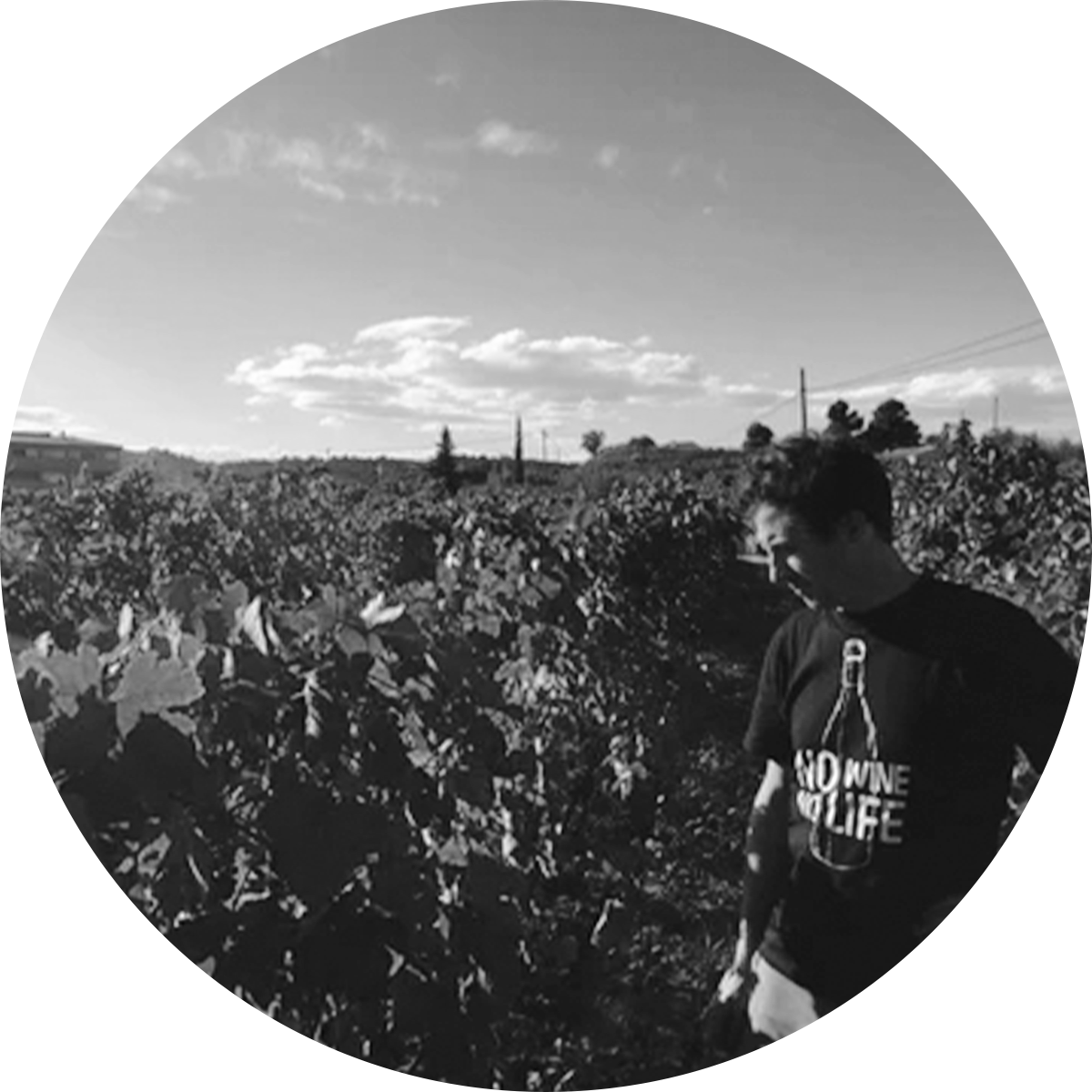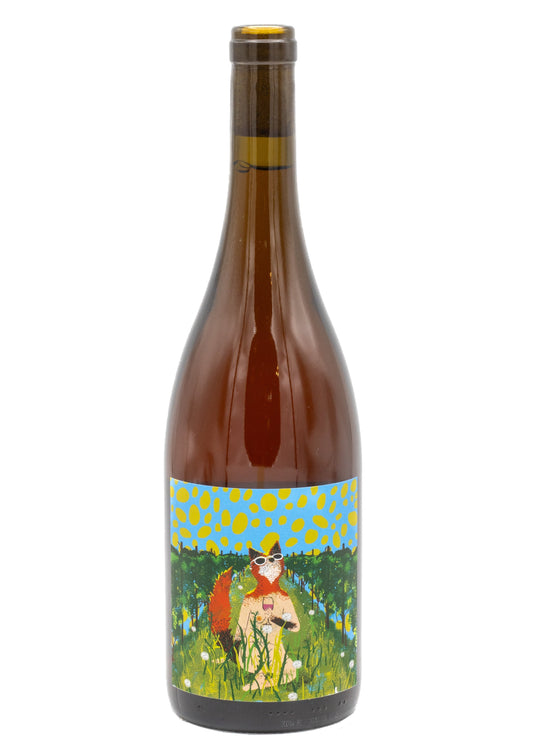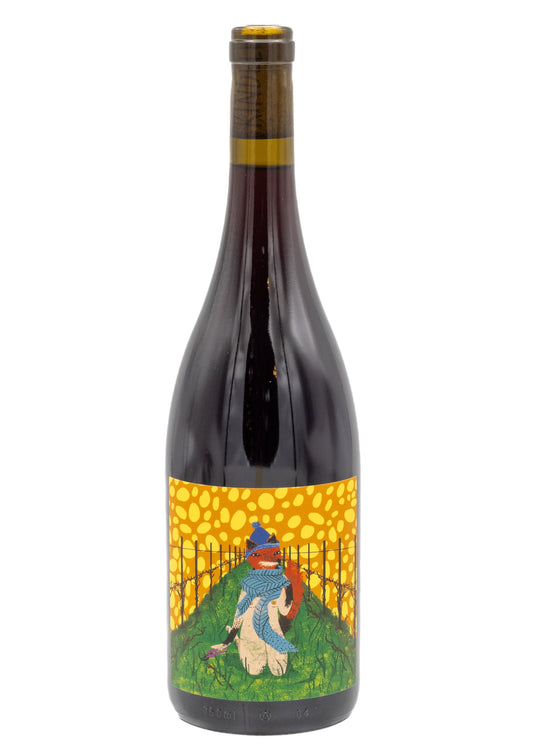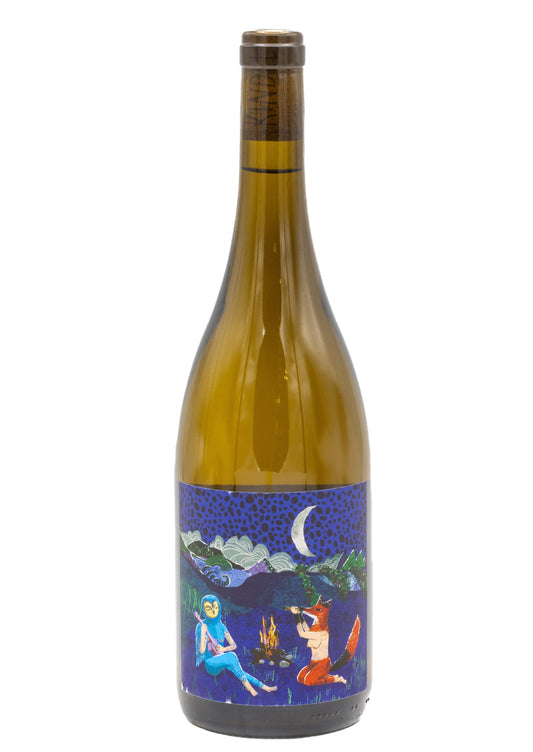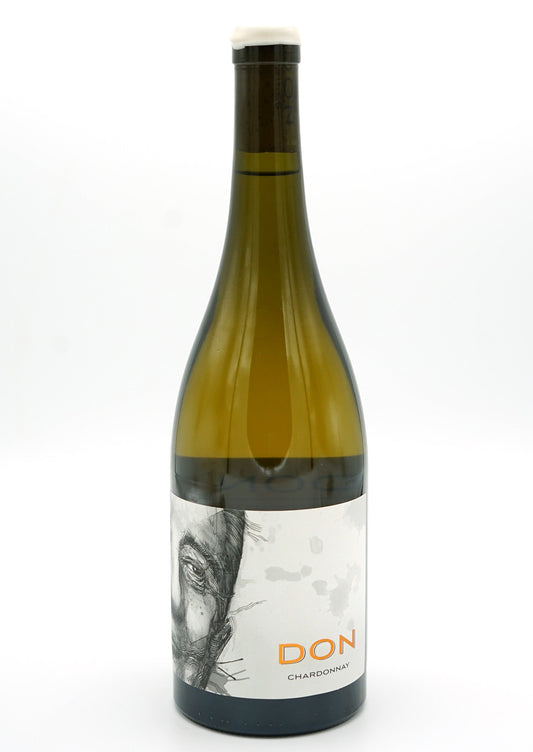ALEX CRAIGHEAD WINES
ALEX CRAIGHEAD & JOSEFINA VENTURINO
Martinborough, New Zealand
Most winemakers don’t ask enough questions like, ‘why are we doing it like this?’ Because usually the answer is, ‘well, that’s just the way I was taught’, but that’s not really good enough. Everyone should want to experiment with their technique, as much as possible.’ - Alex Craighead & Josefina Venturino.
Australian Alex Craighead had his first experience with the wine world during a wine tasting in the Swan Valley, Western Australia. After which he fell into the rabbit hole of winemaking, decided to quit his accounting studies to start learning about viticulture and oenology in New Zealand.
In 2008 he met Josefina , a landscape architect from Argentina and, after living around the World for a few years, they returned to New Zealand. Drawn to low intervention wines and winemaking, the couple began to experiment with zero sulphur wines in 2013. In 2014 they released their first wines in Martinborough. In 2016 they moved to Nelson, where they bought an existing organic winery and vineyard. Here, they take care of 4.5 hectares planted with 14 different varieties. In addition, they lease another three vineyards totalling another 9.5 hectares. Skin fermentation and whole bunch methods are at the core of Alex and Josefina’s progressive (and uncommon for New Zealand) winemaking.
-
Alex Craighead Wines Kindeli Verano 2022
Regular price HK$230.00Regular priceUnit price / per -
Alex Craighead Wines Kindeli Invierno 2022
Regular price HK$230.00Regular priceUnit price / per -
Alex Craighead Wines Kindeli Luna Nueva 2022
Regular price HK$230.00Regular priceUnit price / per -
Alex Craighead Wines DON Top Block Chardonnay 2019
Regular price HK$337.00Regular priceUnit price / perHK$375.00Sale price HK$337.00Sale -
Alex Craighead Wines Kindeli Naranja 2023
Regular price HK$220.00Regular priceUnit price / per
BACKGROUND OF NATURAL WINE IN NEW ZEALAND
New Zealand's natural wine scene is an exciting chapter in the country's winemaking narrative, marked by a commitment to sustainability and a return to traditional, minimal-intervention practices. While New Zealand's wine industry gained international acclaim for its Sauvignon Blanc and Pinot Noir, the natural wine movement has added a unique dimension, drawing inspiration from both ancient winemaking methods and the country's pristine terroir. Regions like Marlborough, Central Otago, and Martinborough have become focal points for natural wine enthusiasts, where winemakers harness the expressive qualities of local grape varieties such as Sauvignon Blanc, Pinot Noir, and Chardonnay. With a blend of innovation and reverence for the land, New Zealand's natural wine producers are contributing to the global conversation on sustainable viticulture and producing wines that encapsulate the essence of their terroir.
Organic, Biodynamic and Natural wine. What’s the difference?
To understand this concept and its various ramifications, it is necessary to keep something clear in mind: before the 20th century and the spreading of affordable synthetic fertilisers, all farming was organic. When the shift to the use of synthetics and pesticides happened, it became necessary to diversify traditional organic farming from the new modern farming.
ORGANIC WINE
Simply put, organic farming forbids the use of synthetic fertilisers, synthetic pesticides, herbicides, or genetically modified organisms. The basic requirements are generally specific and engage the farmers not to use any chemical fertilisers and other synthetic products in the vineyard. It does not prevent the vintner from using the conventional winemaking process after harvesting.
BIODYNAMIC WINE
Let’s take organic farming one step further: Biodynamic. The creator of this agricultural system is the Austrian philosopher Rudolf Steiner, who developed the principles of biodynamics in a series of lectures given in 1924 in Germany. Here lies the foundation of true organic wines, with a strict limit in the use of additives, stringent requirements and at the end obtaining a biodynamic certification.
NATURAL WINE
The previous definitions are usually, and rightfully, associated with it, because most natural wine is also organic and/or biodynamic. But not vice versa!
Natural wine is wine in its purest form, simply described as nothing added, nothing taken away, just grapes fermented. No manipulation whatsoever, minimal intervention both in the vineyards and in the winery. Healthy grapes, natural yeast and natural fermentation, with no filtration nor fining. Sounds easy, right? However, making natural wine is unforgiving and it requires a bigger amount of work than conventional wine. To this day, natural wine has no certification yet.

